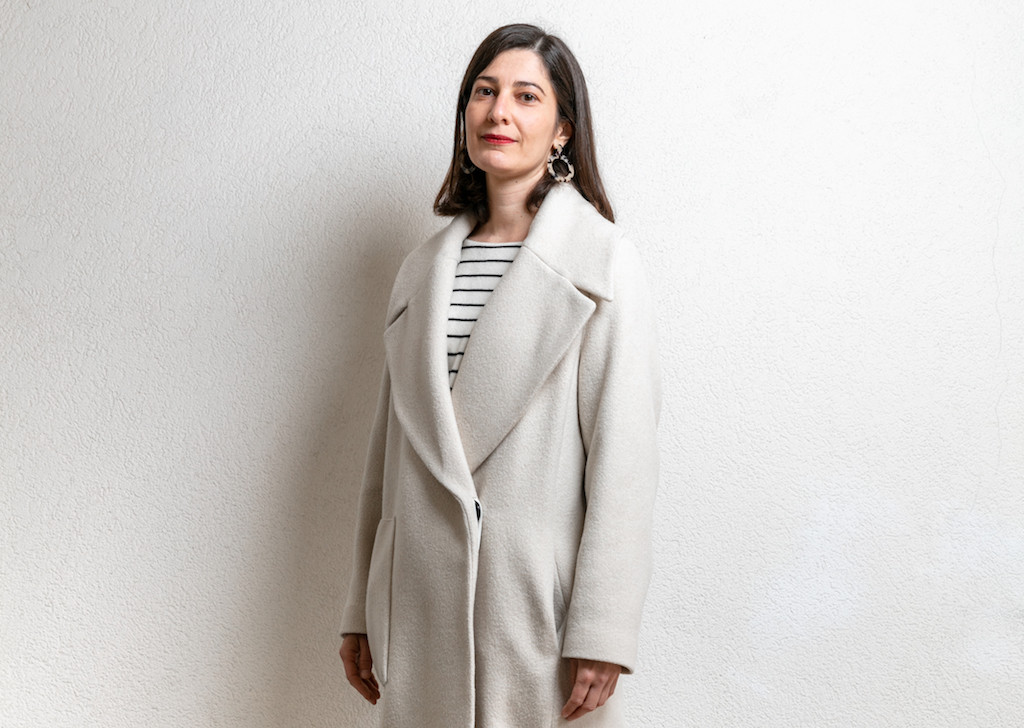Duncan Roberts: You have just had a short story, Blue Like a Tangerine, published in English. What inspired you to write in English?
Elise Schmit: During the first lockdown, I started writing stories for friends of mine, to cheer them up basically. And one of my friends is a writer who doesn’t speak German. So, I started working on two versions simultaneously, a German one and an English one. I was surprised, because I really try to showcase what I do when I write. So, it became a very personal and important story for me. And that is why I gave it to Red Fox Press [with illustrations by Antic-Ham].
How did that collaboration come about? Have you worked with Red Fox Press before?
Not at all. I like the illustrator. And it occurred to me that, you know, I could just ask. And she wanted to do it. So, I'm very happy about it. It’s very beautiful. But it’s a limited edition of 150.
You’ve also worked on a project for the Théâtre National, which, again, uses English as well as Luxembourgish.
It is a coincidence, really. I never thought of writing in English at all. I had this project, Under The Sun, that I developed with a British actor, Adrian Decosta. And the idea was that each of us would write one character, and we would do the dialogue together.
But our processes were so different that they were not compatible at all. So, we decided that I would write the entire thing. But it’s a good experience. It’s nice to know that I can widen my scope.
It’s set in a dystopian world where climate change has such an impact on people’s lives that they cannot go out. In fact, the restrictions are very similar to the ones we encounter during the pandemic. And then it asks the questions: how can people meet? How can they fall in love? It’s a love story. And you know, it’s one of my love stories, so it’s pretty bleak. It will be staged in October, I hope.
You recently also had a letter published in the Tageblatt arguing for the importance of inclusive language in the arts and against straw man fallacies surrounding cancel culture. Why is this still a topic of debate in 2021?
Some people do not want to let go of their privilege. Many people who engage in this debate pretend like there’s no problem at all, or that it’s just a joke. And they treat language as if it were the problem, whereas it’s only a symptom of an underlying problem, of an underlying inequality that is there and that we have to face and that we have to do something about.
Yes, surely the objective of literature and art is to reflect society.
It is. If it wants to or not. I wouldn’t say that artists have to reflect on every topic that comes up in public debate. But their work will be seen in the context of what is an important topic at the moment. So, there is no way art and society do not connect. So, for me, it is important as this concerns language. This is my instrument.
Do you think Luxembourg lags behind other western countries?
It does. But Luxembourg is so small. And I think that is a problem. Our debate cannot be as diverse, because we do not have that many people. Absurdly, sometimes it is more difficult to be heard in such a small environment where it seems that the positions are fixed. And also, we have different languages. So, we can connect to many different debates in different countries. But we don’t have this one debate going on here.
It’s also it's a different debate for English. I mean, because German has female and male nouns, right? French has the same. But in English many words are neutral. It’s not only about sexism, though. It’s not only about women and men. I mean, you have the same type of debate and the same arguments with inclusive language when it comes to racism, and about other minorities or other marginalised groups.
Do you wish more public figures or more people from the world of culture would jump on the barricades with you?
Yeah. I mean, I’m surprised that I’m on the barricades at all. Because I think there are people who are more qualified to engage in this debate than I am. I just got upset in the moment and I wanted an outlet for this rage. Somebody has to do it. But as I also said on Twitter, the debate doesn’t need me, and I do not need this space for myself.
You first won the Concours littéraire national at the age of 28. And then again, two years later, and the Prix Servais as well. What sort of help does recognition like that give your career?
It opens up opportunities. You get to meet the people who can genuinely help you with your career. It gives you confidence. The first prizes gave me the confidence to go look for an agent, for example, and to try to get the residency Berlin I did two years ago. That was that was a changing point, really. I was among writers and had the time to focus on writing and on the questions surrounding writing.
Do you think the government and the ministry of culture is doing enough to support Luxembourg literature?
It’s never enough in culture, especially in Luxembourg. We lag behind when it comes to professionalisation. It's not about writers so much. I think it’s a lot about editors. Editors need more help because they don't have the structures to promote literature. I mean, even in Luxembourg, it’s difficult for them, but then across the border, it’s very, very difficult. I think yeah, that’s where I would start.
A version of this interview first appeared in the June 2021 edition of Delano.
